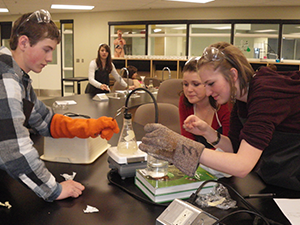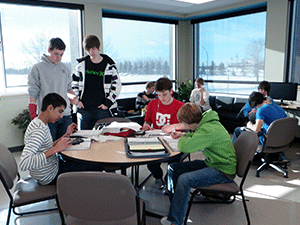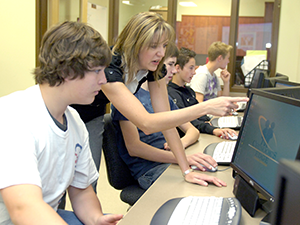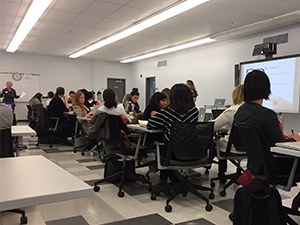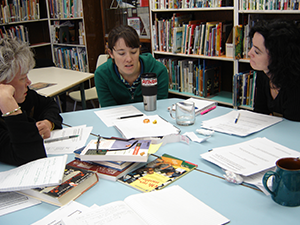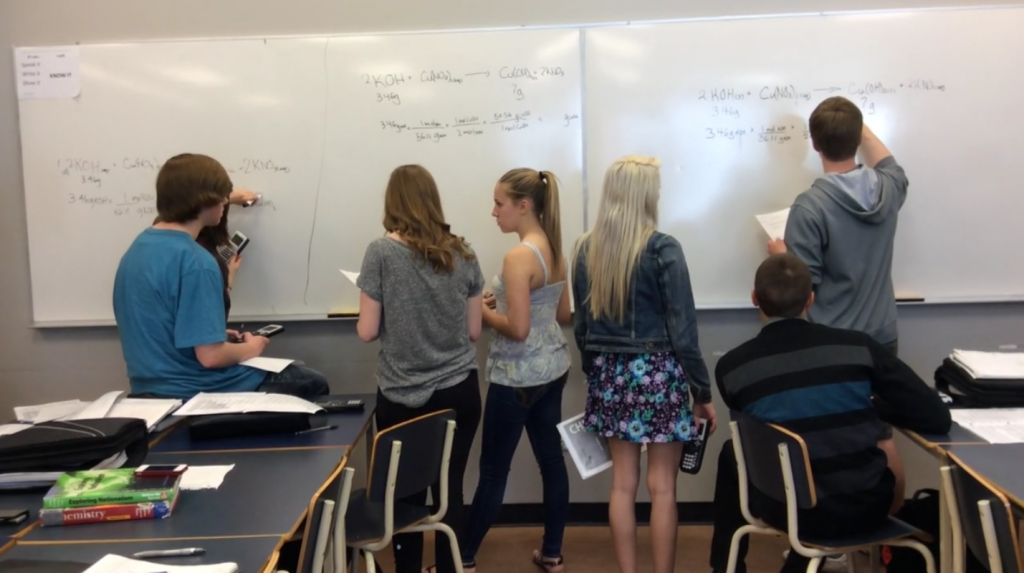Blog
Learning to Change, Learning to Innovate (Part 2)
Galileo Educational Network May 18, 2017 Research and Alberta’s High School Redesign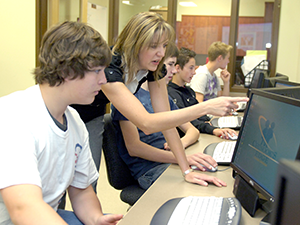
Alberta’s high schools are changing. From structure to improved student engagement, the goal is a system rooted in pedagogically sound organizational structure, quality teaching and optimum learning for students, teachers, and administrators.
How this change is coordinated, while staying true to fundamental principles and roots, is best explained by talking about complex adaptive systems.
What did researchers find?
(the 11 findings from this study will be discussed over the next series of blogs, read about findings 1 & 2 here)
The following findings pertain to research question 1: What conditions exist within the school that allow for the scalability of the high school success undertaken by the school?
Finding 3: Engaging in collaborative inquiry
A collaborative inquiry approach focused on student learning (achievement, engagement and well-being) is required at all levels of the learning system to develop new conceptions of teaching, learning, assessment and leadership in high schools.
Collaborative inquiry required the learning community to work as a team instead of working in isolation. It is evident that the seven schools the team studied found ways to work collaboratively within their sites and with other schools involved in high school redesign initiatives to improve learning. Together, teams questioned existing approaches, examined new conceptions of learning in high schools and provided mutual support. Changes required all members of the learning system to work together.
Teachers noted that professional development and professional learning are part of the fabric of the way they do their daily work, rather than an event occurring at a specified time and date.
Finding 4: Making teaching visible
Visible teaching, that included peer mentoring, planning and teaching contributed to teachers’ effectiveness and also allowed teachers to actively seek and receive feedback from their peers in their own and other disciplines.
Participants reported ongoing interactions with colleagues and continuous network building across the school. One of the principles of teaching effectiveness (Friesen, 2009) is that teachers improve practice in the company of their peers. The continuous interaction contributed to teachers’ effectiveness and also allowed teachers from different disciplines to actively seek feedback from their peers in other disciplines. Some teachers called these “fierce conversations” as they worked collectively to improve, strengthen and expand their teaching approaches and pedagogical strategies.
Finding 5: Developing comprehensive understanding of the curriculum and assessment
A comprehensive understanding among teachers of the curriculum across, within and between grade levels and subjects and employing formative assessment strategies are becoming a part of day-to-day practice; making learning criteria visible and explicit to students is an area for growth.
Teachers reported that collaborative planning and co-teaching resulted in a comprehensive understanding of the Programs of Study in all subject and disciplinary areas. Teachers’ comprehensive understanding, of not only the courses they were teaching, but also of the other courses and other grades, guided the selection of resources and creation of activities that teachers expected the students to master.
The pervasiveness of design principles were enacted by teachers across the schools. Elements of a learning design include:
- Understanding of how students learn,
- The concepts in the disciplines they teach,
- Understanding the outcomes in the Programs of Study,
- Robust, authentic task design (Friesen, 2009; Herrington & Oliver, 2000; Newmann, et al., 2001),
- The extent to which the designs include tasks that are meaningful to the students (Friesen, 2009; Perkins, 2009, 2014), and
- The extent to which the tasks that were designed connected students to the world outside of school (Friesen, 2009; Newmann, et al., 2001; Perkins, 2009, 2014).
Teachers had exceptional understanding of both core disciplinary concepts and the outcomes articulated in the Alberta Programs of Study. In addition, a common focus on assessment in all discipline areas served to develop a comprehensive understanding of the curriculum.
Finding 6: Seeking input from school and system level influences
Students provided input and were regularly consulted in developing ideas for high school redesign.
In all the schools, the participants noted the importance of continually seeking student input for future adaptations. Participants discussed the value for student input in developing ideas for high school redesign and designing for personalized learning.
Clearly, student input and student data are valued in these schools and continuously informs strategic planning and actions within the school. The final finding in this section suggests learning systems need to regularly seek and act-on input from students. In other words, students need to be partners in learning. The schools in this study reported their students regularly provide input and are consulted in developing ideas for high school redesign.
The next blog will provide an overview of the next three findings and discussion related to the second research question.
For a full discussion of the findings reported in this blog, please consult the full report of the study.
References:
Friesen, S. (2009). What did you do in school today? Teaching effectiveness: A framework and rubric. Toronto, ON: Canadian Educational Association.
Herrington, J. & Oliver, R. (2000). An instructional design framework for authentic learning environments. Educational Technology Research and Development, 48(3), 23-48.
Newmann, F., Bryk, A., & Nagaoka, J. (2001). Authentic intellectual work and standardized tests: Conflict or coexistence? Chicago: Consortium on Chicago School Research. Retrieved from http://ccsr.uchicago.edu/sites/default/files/publications/p0a02.pdf
Perkins, D. (2009). Making learning whole: How seven principles of teaching can transform learning. San Francisco, CA: Jossey-Bass.
Perkins, D. (2014). Future-wise: Educating our children for a changing world. San Francisco, CA: Jossey-Bass.

